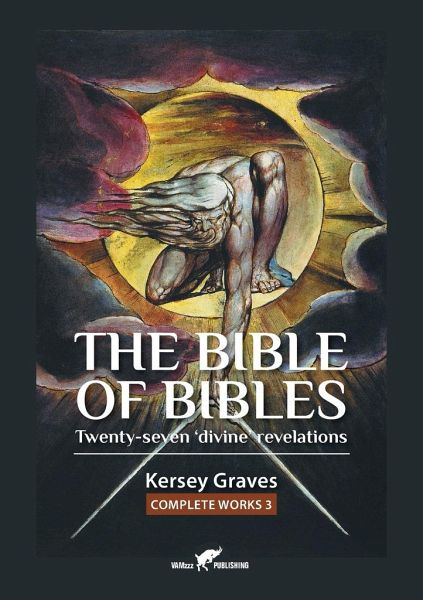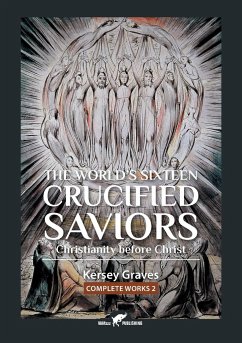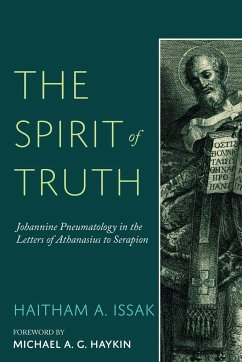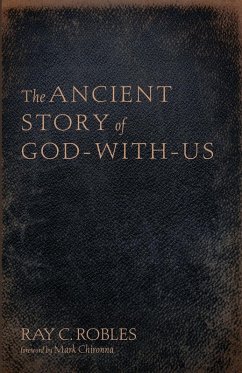
The Bible of Bibles
or Twenty-seven 'Divine' Revelations
Versandkostenfrei!
Versandfertig in 1-2 Wochen
29,99 €
inkl. MwSt.

PAYBACK Punkte
15 °P sammeln!
The Bible of Bibles is a partial philosophical, social and historical treatment on the nature God and the Bible and it’s many "predecessors", like the sacred books of India and China. Kersey Graves deals with the common ground from which these holy books arose. Bibles are, in his view, a more or less natural product of a threefold division of man’s mental faculties working together, being: the intellectual department, the moral and religious department and thirdly, the animal department (which includes also the social). According to Graves, true religion does not regard God as a personal m...
The Bible of Bibles is a partial philosophical, social and historical treatment on the nature God and the Bible and it’s many "predecessors", like the sacred books of India and China. Kersey Graves deals with the common ground from which these holy books arose. Bibles are, in his view, a more or less natural product of a threefold division of man’s mental faculties working together, being: the intellectual department, the moral and religious department and thirdly, the animal department (which includes also the social). According to Graves, true religion does not regard God as a personal monarch, governing the universe by the caprices of an angry and fickle mind, but as the living, moving, all-pervading, self-sustaining, energizing, vivifying power which moves and sustains the machinery of the whole universe. Graves does not deny a divine force, but ridicules the assumption this force has a personality. Partially, by enumerating mistake after mistake made by many holy Biblical figures, including Jesus. Evil is treated in a more dialectic way and seen as a force that pervades not only the human realm, but the entire nature. It is seen as simply the negative pole of the great moral battery, and without it the battery could not be run. Without it there could be no morality, no moral principle or accountability, while man exists upon the present animal plane. In fact, morality without evil would be an unmeaning word.














